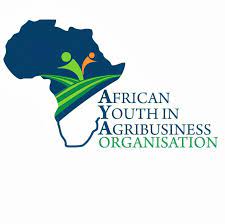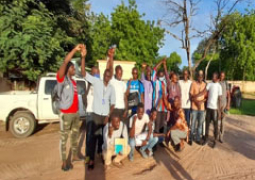
This is because “sustainable economic transformation cannot be accomplished in (East) Africa without empowering the youth as agents of change,” said Chimimba David Phiri, FAO Sub-regional Coordinator for Eastern Africa and Representative to the African Union and the United Nations Economic Commission for Africa.
In his opening remarks at the EAC 11th Sectorial Council on Agriculture and Food Security, he underscored that the increasing demand for food as a result of growing population and rising incomes, opportunities in import substitution, and non-farm economic activities around food value chains are favorable factors for more youth to engage in the agricultural sector.
The high level meeting identified the issue of youth employment as one of the crucial steps to meeting the Comprehensive Africa Agriculture Development Programme (CAADP) targets.
The move by the FAO and EAC towards engaging East African youth in the agricultural sector to bring about lasting economic development.
The meeting recognized and awarded six youth champions in agriculture entrepreneurship (one from each EAC Partner State).
The six youth champions were selected from a set of 16 EAC young agripreneurs from the EAC Partner States that underwent an intensive hands-on training at Songhai Regional Centre in May 2018.
Each of the Youth Champions received US$ 5,000 Grant Award meant to scale-up their agri-businesses and promote the agenda of youth in agriculture and to inspire young people towards the sector.
The ceremony was held in the presence of Vincent Ssempijja, the Minister for Agriculture, Animal Industry and Fisheries of Uganda and Chair of the EAC Sectoral Council on Agriculture and Food security; Permanent/Principal Secretaries of Ministries of Agriculture in EAC Partners States, African Union and other representatives of development agencies and the private sector.
For his part, Christophe Bazivamo, Deputy Secretary General - Productive and Social Sectors, East African Community (EAC) Secretariat commended ongoing joint efforts between FAO and EAC by stating, “Identifying and documenting youth champions in agriculture is commendable as it will help involve more youth in the agriculture sector.”
The champions were recognized for their efforts in identifying opportunities in the sector, committing resources, and establishing enterprises that have provided a source of livelihood for themselves and employment for fellow youth.
Plans are underway to award the youth at country-level with the aim to support expanding their businesses and impact positively their respective communities and other African youth by creating rural youth employment opportunities.
He thanked FAO and EAC for their concrete contribution to investing on youth-in-agriculture.
The East African region hosts a large population of youth (persons under the age of 34), which is estimated to reach 75% of East Africa’s total population by the year 2030, a trend perpetuated by population growth. Despite efforts made by countries, about 65% of youth are unemployed, causing countries various economic and social problems.
In response, FAO and EAC through a technical cooperation project sought to document best practices and business models of engaging youth in agriculture; build their capacity to unleash creativity, energy, innovation and entrepreneurship and to curb distress rural/urban rural youth migration.
The FAO – EAC joint project: Promoting Youth Employment in the Agricultural Sector in East Africa seeks to enhance an enabling environment for the rural poor, especially youth to access decent jobs with the overall objective to contribute in reducing rural poverty and to boosting economic growth through supporting the creation of better opportunities for youth in the agricultural sector.
This project is aligned to the East African Youth Policy of August 2013 and the 2014 African Union’s Malabo Declaration on “accelerated agricultural growth and transformation for shared prosperity and improved livelihoods”.
African Union Member States pledged to increase youth employment by 30 percent, by strengthening of agriculture value chain development.
The Sixteen Youth Champions-in-Agriculture from the EAC completed an Incubation Training in Agribusiness and Sustainable Agro-ecological Practices at Songhaï Regional Centre in Porto Novo, Benin.
They were trained on systematic value chain, Crop Production, Animal Husbandry and Nutrition, Fish Farming, and Renewable Energy, They were taught and mentored on developing business plans that would enable them become agripreneurs and serve as rural community livelihood peer-trainers in agriculture to drive inclusive economic growth and prosperity.
Source-Africa Youth news





